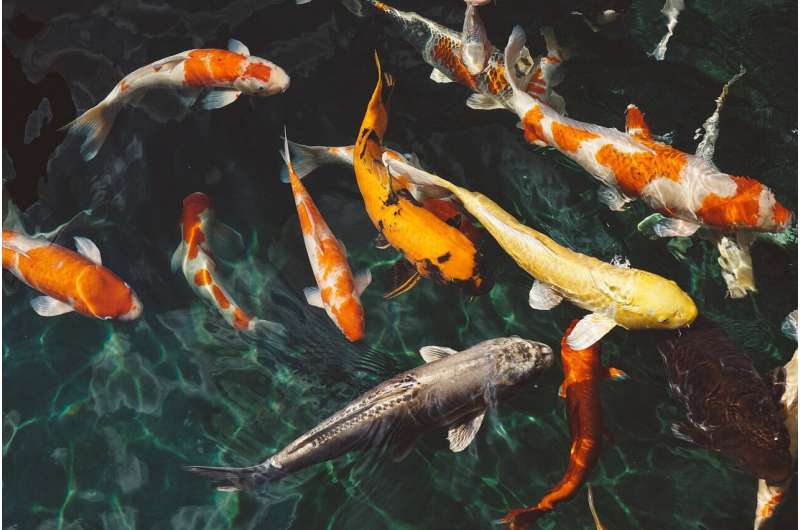Credit: Pixabay/CC0 Public Domain
Yury Dyldin, a scientist at the TSU Biological Institute, initiated a large-scale study of the diversity of freshwater fish and marine species entering the fresh waters of the Russian Federation and adjacent regions. The audit carried out by scientists from Russia, the Czech Republic and Germany showed more than 300 previously unrecorded species in the Russian Federation. The findings are presented in the Kyoto University Research Information Repository.
As the TSU ichthyologist notes, quantitative data on fish biodiversity are based mainly on studies in the middle of the last century with minor additions, which gives extremely erroneous data on the true state of Russian ichthyofauna. A group of scientists that included specialists from the three countries, including one of the most recognized ichthyologists in the world, Ronald Fricke (Germany), analyzed a large array of information regarding the ichthyofauna of the Russian Federation.
The work is based on critically analyzed sources—books, publications, dissertations and reports of research institutes and typical catalogs and databases, for example, "Catalog of Fishes," covering more than 200 years. Along with this, the ichthyologists analyzed long-term studies published in scientific sources over the past 35 years (up to 2016 inclusive). They also considered the ichthyological collections of 15 scientific organizations in Canada, Japan, Russia, U.S. and U.K.
New data were obtained for Russian water bodies, in particular, for the largest river in Russia—the Ob and its basin. The researchers restored the taxonomic status of the Nikolsky grayling and distinguished the Siberian lamprey as separate from another species, the Kamchatka lamprey. As another example, the researchers cite data on the small river Lyutoga in the south of Sakhalin, which flows into Aniva Bay. In less than five years, a number of migrant species from more southerly waters have been recorded here, among them several species of puffer previously not found in Lyutoga and Aniva, sea perch, and others.
"Until recently, according to various sources, the composition of the fresh and brackish ichthyofauna of Russia included from 351 to 486 species," says Yury Dyldin. "Our studies have shown that their number is almost twice as large and includes 791 species. It should be noted that Russia, due to its size and a large number of waterways, remains a natural reservoir for the preservation of a huge number of wild populations of various fish species. Certainly, some representatives of ichthyofauna require protective measures, but compared with many other countries, Russia appears at an advantage. "
The new data is integrated into the most authoritative taxonomic database, the Eschmeyer Fish Catalog of the California Academy of Sciences. The research results will be presented in full in a monograph, which is planned for publication in Zootaxa.
More information: Dyldin, Yury V. et al. Fish diversity in freshwater and brackish water ecosystems of Russia and adjacent waters, the Kyoto Imperial University Publications of the Seto Marine Biological Laboratory (2020). repository.kulib.kyoto-u.ac.jp … e/handle/2433/251251
Journal information: Zootaxa
Provided by Tomsk State University






















